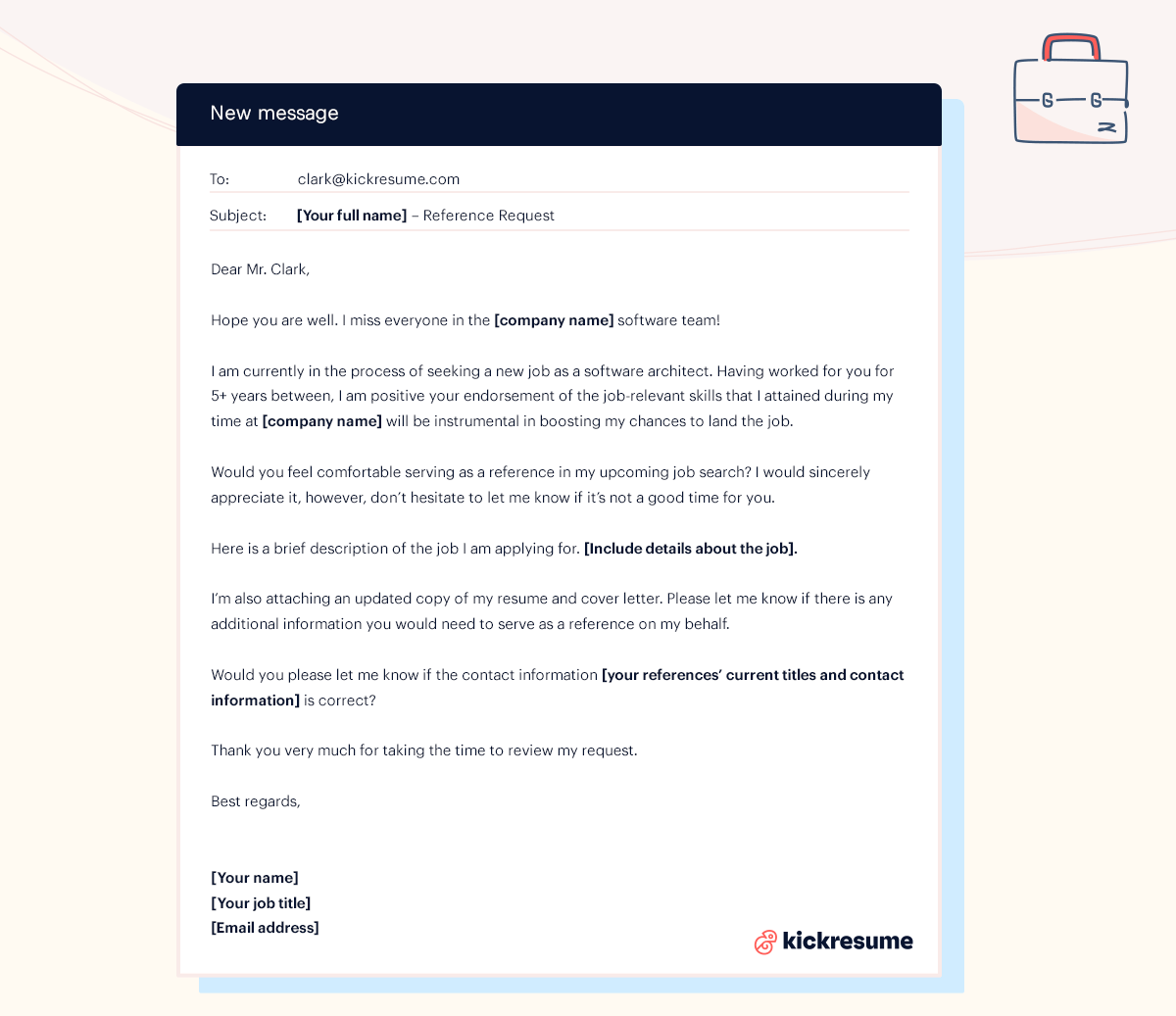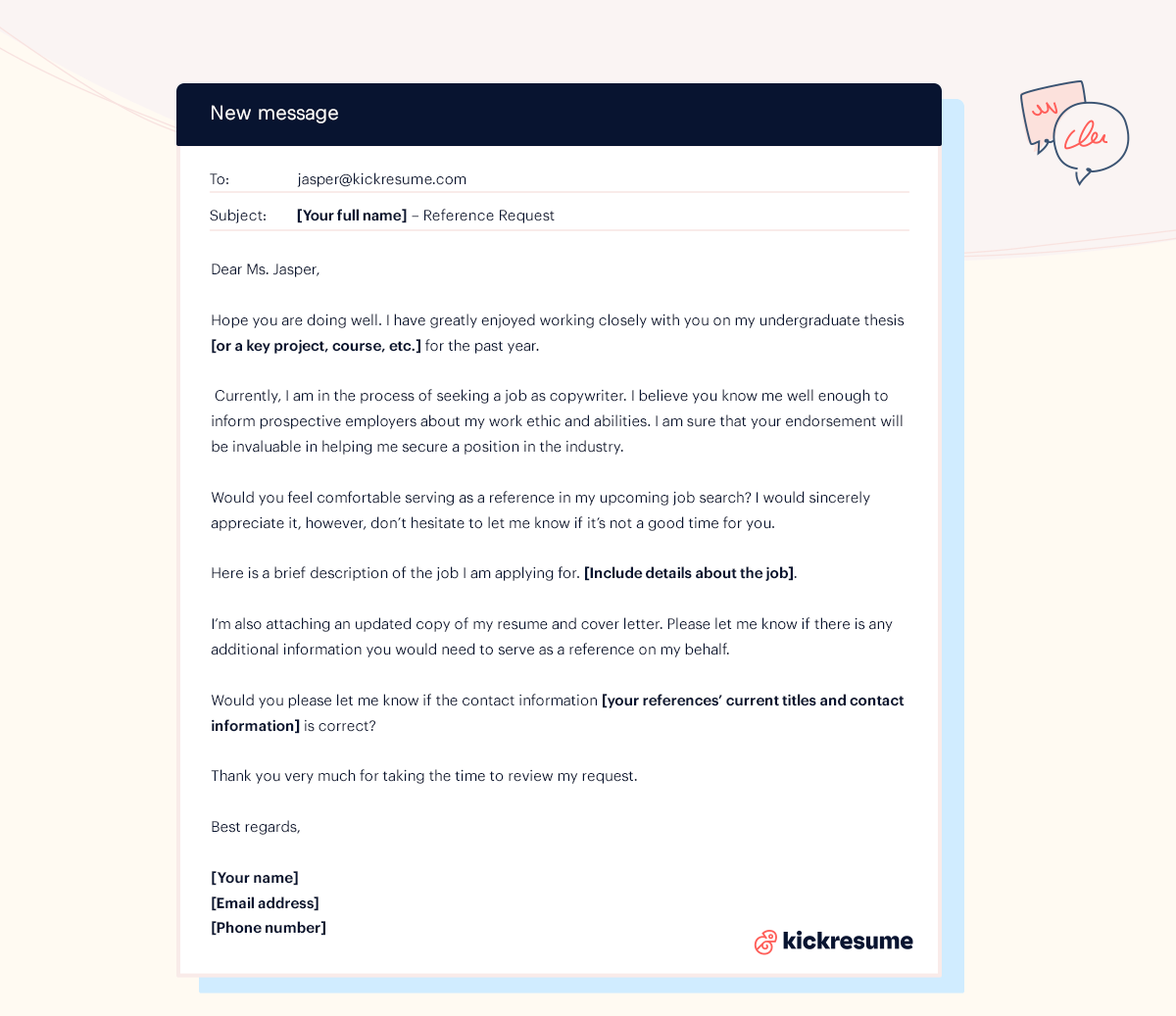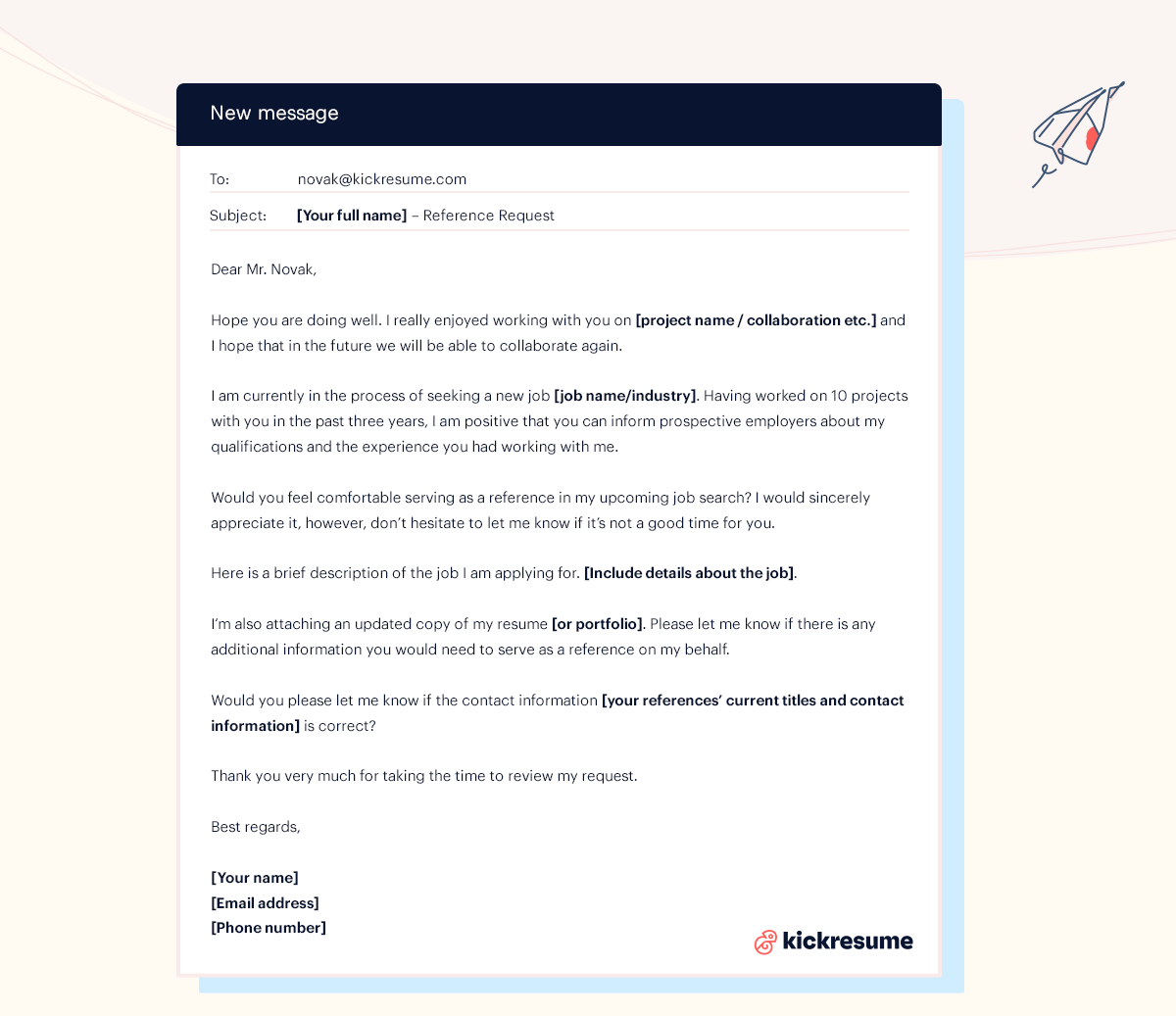During the job hunt process you should be prepared to provide a list of references. If you want to know how to ask someone to be a reference for you, you've come to the right place. Asking for a reference the right way will ensure you're a credible and reputable candidate.
After all, having a person attest to your skills and achievements is a great way to leverage your professional experience. It might just be the thing which sets you apart from other job applicants.
But there are a few things you should do before you send out the list.
What is a reference on a resume?
Firstly, references usually aren't included on a resume. Rather you should list them on a separate document which you send along with your CV. This is also the reason why you typically won't find a references section on most resume samples.
So, what is the purpose of having references?
Letting a third party vouch for you and provide your future employer with more information about your professional experience is great way to seal your (good) reputation. References will let your future boss know how you performed in your previous occupations or throughout your studies.
And when should you include references directly on your resume?
Preferably do a separate list for your references. You should only include references directly on a resume in a few cases:
- If your reference is someone well-known in the industry;
- You're a fresh graduate lacking work experience;
- You work as a freelancer;
- The job listing asks you to do so.
If you decide to include a references section directly on your CV, you can do this in an elegant way with Kickresume's resume templates. Find out more about how to put references on a resume.
But don't forget that your references have to agree with having their contact information shared, first. Hiring managers can contact your references and ask them about your ethic, your skills, and your professional background.
Who to ask for references?
Consider people you have worked for and worked with. Think of people who know you well, who can speak highly of you, and people who will vouch for you. The person should be articulate and in a reputable position. Also, make sure the most recent and relevant references are listed first.
Here are five types of people to ask for resume references:
- Professor/teacher: If you're a student or a recent graduate, selecting a college professor who can speak highly of your academic performance and participation in (extra)curricular activities is your best shot.
- Previous employer/former boss: If you're an experienced professional, selecting your previous boss as a reference is common practice. They usually make the most compelling recommendations.
- Current employer: A current boss is the most relevant and recent reference you can provide. Just make sure to ask them only if you're on good terms with them.
- Former clients/customers: If you don't have an employer per se, let your clients do the bragging for you. They know best how working with you on a day-to-day basis is.
- Current colleagues/coworkers: If you don't see eye-to-eye with your boss but your coworkers love working with you, then make sure to select them. It's a relevant and recent reference.
Do you need to ask someone to be a reference, first? YES! Listing someone as a reference without asking them first is the worst thing you can do. Make sure you're always letting references know they will be contacted, otherwise it can backfire.

What should you do if a person is reluctant to be your reference? Definitely don't pressure them. Make sure you have a backup if someone declines. It's best to have three references on your list – so, ideally choose around five people to ask.
How to ask someone to be a reference?
You have now decided on who you want your references to be. Now it's time to ask them if they agree. So, how do you ask someone to be your reference? Via a meeting, a call, or an email?
It's always best to ask your potential reference in person. However, sometimes that gets pretty complicated. Now more than ever because of the pandemic. Therefore, try giving the person a call if you can't arrange a meeting. If calling is not an option either — let's say because your employer is very busy — go for an email.
What should you say in an email asking for a reference?
- Start with a greeting and a pleasantry. It's better to smoothly transition to your reference request, rather than starting with it right away — that may seem rude.
- Reminder of who you are (if necessary). It's helpful to refresh their memory by briefly stating who you are and what your professional relationship was.
- Explain where you're heading careerwise. This lets them know you're applying for a new job.
- Phrase your request politely. You have to ask them in a way which won't pressure them into saying yes, and will let them gracefully refuse. (e.g. "Would you feel comfortable serving as a reference in my upcoming job search?")
- Include details about the job. Your reference is surely a busy person, so make sure to save them the time of looking for the job description themselves. This lets your reference prepare for giving a relevant recommendation. Keep it brief.
- Attach your resume. It's important that your reference has all the updated information about your work history, because it lets them make a proper and relevant recommendation.
- Contact information. Firstly, give them your contact info in case they want to call you up and ask questions. Secondly, make sure their reference contact information is correct (including titles).
- Thank them. End your email by thanking them for their consideration. If they agree with providing a reference for you, send them a follow-up email expressing your gratitude as well.
Don't forget to include a professional subject line for reference request: Your Name — Reference Request
Reference email examples
When you put together all of the information above, you'll have written a professional and polite email. We have done the work for you.
Here are three reference email examples you can use — for a previous employer, a teacher, or a client. Feel free to download them and edit them to suit your needs.
How to ask your previous employer/boss for a reference (example email)

How to ask your professor/teacher for a reference (example email)

How to ask your former client for a reference (example email)

How to ask for reference on LinkedIn?
If you're really into networking on LinkedIn (good for you btw), then asking for a reference is super convenient and simple. The benefits of an active LinkedIn profile are well-known, it's an easy way to present your skills, showcase your work and, of course, business-oriented networking.
Follow these 7 steps for asking a reference on LinkedIn:
- Sign in to your LinkedIn profile;
- Type the person's name in the search bar;
- Open their profile and click on "More..." button, which is right next to the Message button;
- Select "Request A Recommendation" from the drop-down list;
- Select the type of "Relationship" and "Your position at the time" from the drop-down list, then click Next;
- Write a short personalised message asking the person to recommend you. You can also use one of our example emails;
- Click "Send".
What comes after asking someone to be your reference?
If you have successfully sent out an email, you've done the majority of the work. Now let others brag about you. However, there are two main things people often forget to do:
- Say thank you. It doesn't really matter whether you got a positive or a negative response, always send a follow-up email. If the response was positive and they agreed, make sure you express your gratitude. If it was negative, politely thank them for their time.
- Give updates. As soon as your reference agrees, let them know around what date and time they should expect to be contacted. If you get the job, update your reference about your success — they will be thrilled to know!
Make your resume as commendable as your references with our AI resume builder. It's your top ally in creating an exceptional resume that complements your shining references.




